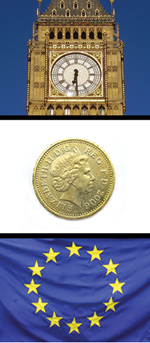Westminster and devolution: who does what?
Devolution in Northern Ireland divides government policy into three categories. As a rule, responsibilities are transferred to the Assembly, subject to a list of exceptions which are either reserved or excepted.
Reserved matters could be devolved but a common national policy is currently considered the best approach. Most aspects of policing and justice in Northern Ireland were also reserved from the introduction of direct rule in March 1972 to April 2010. Excepted matters belong exclusively to a nation-state. The Assembly also adopts parity legislation to keep Northern Ireland in line with Great Britain.
As Parliament is sovereign, its laws cannot be overturned by the Assembly. However, any legislation on transferred matters would need the Assembly’s consent i.e. a legislative consent motion.
Sitting Members of Parliament can influence reserved and excepted policies through their work in Parliament. Sinn Féin deals with the UK Government through direct negotiations.
All MPs can also lobby on transferred matters through constituency work.
Excepted
 These can only be devolved through a new Act of Parliament. Apart from tax-raising powers, devolution is highly unlikely as excepted matters affect how the UK as a whole is governed and its relations with other states. A full listing is found in the Northern Ireland Act 1998, Schedule 2: www.legislation.gov.uk/ukpga/1998/47/schedule/2
These can only be devolved through a new Act of Parliament. Apart from tax-raising powers, devolution is highly unlikely as excepted matters affect how the UK as a whole is governed and its relations with other states. A full listing is found in the Northern Ireland Act 1998, Schedule 2: www.legislation.gov.uk/ukpga/1998/47/schedule/2
Constitutional
- Crown and Parliament
- Elections
- Political party regulation
- Appointment and removal of judges
- UK Supreme Court
Foreign affairs
- International relations
- International development
Financial
- Taxation
- Currency
- National insurance
- Child benefit
Security
- Defence and armed forces
- Counter-terrorism
- Nationality and immigration
- Nuclear energy and safety
Reserved
 Reserved matters (see Schedule 3 of the Northern Ireland Act) can be devolved through secondary legislation i.e. an Order, if Parliament consents. Most reserved matters cover social and economic policy. The UK Government intends to devolve parading policy if an agreement can be reached between the Northern Ireland political parties. All reserved matters are outlined at www.legislation.gov.uk/ukpga/1998/47/schedule/3
Reserved matters (see Schedule 3 of the Northern Ireland Act) can be devolved through secondary legislation i.e. an Order, if Parliament consents. Most reserved matters cover social and economic policy. The UK Government intends to devolve parading policy if an agreement can be reached between the Northern Ireland political parties. All reserved matters are outlined at www.legislation.gov.uk/ukpga/1998/47/schedule/3
Justice (non-devolved)
- Classification of controlled drugs
- Police recruitment
- Serious Organised Crime Agency
- Public order at parades
Financial
- Import and export controls
- International trade
- Financial services and markets
- Competition
- Intellectual property
- Pension regulation
- National minimum wage
Transport and environment
- Civil aviation
- Navigation and shipping
- Sea bed (and its natural resources)
Communications
- Telecoms
- Postal services
- Broadcasting
- Internet regulation
Health and science
- Surrogacy
- Human genetics, fertilisation and embryology
- Units of measurement
- Research councils
Other
- Data protection
- National Lottery
- Safety of consumer goods
Transferred
There is no comprehensive list of transferred matters; the official definition is “any matter which is not an excepted or reserved matter.” Announcements from Westminster on these issues therefore apply to England alone. Social security, child support and pensions are technically transferred matters but have parity with Great Britain. The Northern Ireland Executive’s main responsibilities, grouped by department, summarise this category. A listing is available on the Executive’s website at www.northernireland.gov.uk/index/work-of-the-executive/ministers-and-their-departments





